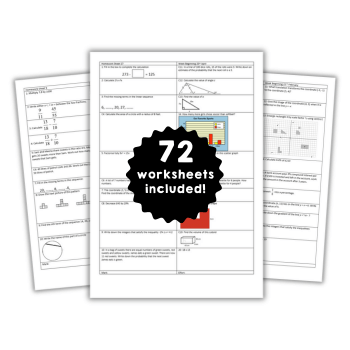Careers in maths – Help students understand the options

A deeper understanding of life beyond GCSE can help teachers encourage more students to continue their mathematical journey, say Claire Baldwin and Paul Glaister…

Students don’t stop doing maths when the lesson finishes – we all know that they use and apply their knowledge and skills in a wide range of other lessons at school and in their daily lives.
So why do so many choose to stop studying maths after GCSE?
Won’t the subject be needed to help them with their future studies in other areas?
Aren’t quantitative, analytical and problem-solving skills in great demand in the workplace?
Young people are under pressure to make the ‘right choices’ to support their future aspirations from the age of 14, or even earlier.
The information sources that they can draw upon to make these choices are vast, and can be overwhelming. It is no wonder, then, that one of the first places they will turn for advice and guidance is a trusted teacher.
It is critical therefore to ensure that teachers are aware of the full range of maths options post-16 and can give clear, accurate advice to help students choose the best option for them.
So how can we motivate our Key Stage 3 and 4 students to recognise and pursue their potential in maths beyond GCSE?
Greater awareness
Mathematical skills are essential for a wide range of careers. Even if a level 3 maths qualification is not essential for a particular career route, including it within a post-16 programme of study is likely to offer an advantage.
Some higher-tariff universities require AS or A level Further Mathematics in addition to A level Mathematics for entry to maths, physics and other strongly maths-related degrees; and some universities reduce their entry requirement across a range, if not all, of their degree courses to students offering a good grade in a level 3 maths qualification.
Studying maths post-16 helps to keep skills fresh and so avoids the ‘maths gap’ that can leave students feeling unprepared for progression to a degree course in a discipline which requires numerical, graphical or quantitative problem-solving skills.
This includes biology, business and management, chemistry, computing, economics, education, geography, health sciences, psychology and sociology, to name but a few.
Studying maths at level 3 supports students with the mathematical and quantitative content within their other subjects – many vocational subjects involve maths, as do around a third of non-maths A levels.
For example, assessment of mathematical and quantitative skills forms a minimum of 40% of the marks for A-level physics, 20% for chemistry, and 10% for biology, business and psychology.
New undergraduates embarking on social sciences degrees are often surprised by the level of mathematics and statistics needed for their degree programmes – if only they’d chosen to study Core Maths post-16!
Informed choice
Students who are on track to achieve GCSE mathematics at grade 4 or above should not be thinking “should I study maths post-16?”; instead, they should be encouraged to think “which maths should I study post-16?”. Their teachers should ensure that students are aware of the full range of level 3 maths qualifications, and the benefits of taking them:
Core Maths is a relatively new qualification – entries exceeded 9000 in summer 2019 and have increased by over 30% year on year. It’s equal in size to an AS level and is graded A-E. It can be studied over one or two years.
Core Maths is designed to prepare students for the varied contexts they are likely to encounter in both vocational and academic study, and in future employment and life, for example, financial modelling and analysis of data trends.
Core Maths has a strong emphasis on contextualised problem-solving in maths in real life scenarios, and is ideal for students who plan to progress to a career or future study in fields such as geography, social sciences or business, and many more besides.
AS and A levels in Mathematics support students’ mathematical needs across a broad range of other subjects at this level and provide a basis for subsequent quantitative work in a very wide range of higher education courses and careers, with a strong emphasis on proof, modelling, mathematical and statistical problem solving, but particularly on the use of real, large data sets.
AS or A level Mathematics would normally be the recommended choice for students progressing to degree courses in engineering, chemistry, computer science, physics and other STEM subjects that require, or benefit from, good algebraic skills.
A grade 5 or higher at GCSE may be needed for accessing the course – students should research carefully the entry requirements for their local sixth forms.
AS and A level Further Mathematics can be taken alongside A level Mathematics. They allow for greater depth and breadth of mathematical study. AS/A level Further Mathematics would normally be recommended to students planning to take a degree in maths, physics or a related subject such as engineering.
Students should be made aware that some university courses require a Further Mathematics qualification. A grade 6 or higher is likely to be needed for accessing this course – again students should research the entry requirements locally.
Achieving aspirations
In order for students to know what will support them to achieve their aspirations, they need to understand why maths is important and how studying maths post-16 can help them to achieve their goals.
Currently, female students make up around 45% of the Core Maths cohort and make up 40% and 30% of the A level Mathematics and Further Mathematics cohorts respectively.
Increasing participation in post-16 maths education from female students and from students in less advantaged parts of the country would extend opportunities and help to address social inequality.
Research evidence indicates engagement with parents/carers, clear and accurate careers and transition advice, and the role of the teacher in providing individual encouragement to students is vital in raising the aspirations of both boys and girls.
Embedding a school-wide culture of teachers in all subject areas promoting mathematics throughout key stages 3 and 4, linking to real-life contexts is also key.
Information and support
The government-funded Advanced Maths Support Programme (AMSP) provides support for teachers and students in state-funded schools and colleges across England, with additional support offered in areas of low social mobility.
The intention is that, whatever their gender, background or location, all young people can choose the best post-16 maths pathway for them.
Students can read more about what qualification is right for them on the AMSP website, and there is specific guidance from the AMSP for teachers supporting the transition to level 3 maths.
Claire Baldwin is MEI’s Raising Participation Programme Leader and has over 20 years’ experience of mathematics teaching and curriculum and senior leadership.
Paul Glaister is Professor of Mathematics and Mathematics Education in the Department of Mathematics and Statistics at the University of Reading. Paul has been heavily involved with KS5 mathematics through recent reforms to A levels and the introduction of Core Maths, including policy and implementation.











